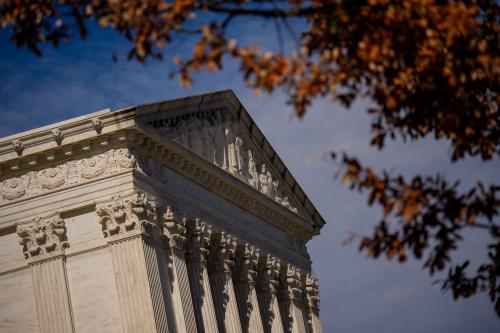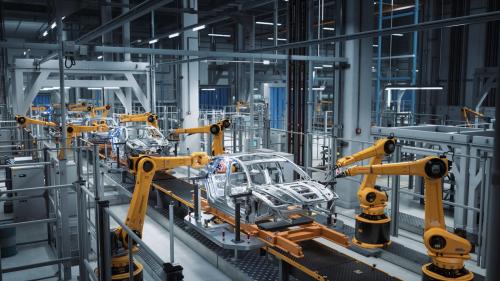Results from the recent referendum in South Sudan show over 98 percent of the people voted for secession. The region is now destined for independence on July 9, 2011. This may bring some hope to a place, which has lost over 2 million people and where over 4 million have been displaced during the civil wars of the past two decades. However, independence brings some serious challenges that need to be addressed. The challenges that lie ahead for South Sudan include; reducing poverty, illiteracy and infrastructure bottlenecks and improving the lack of unity, security and governance.
South Sudan has probably the worst social and economic indicators in the world. It is estimated that over 70 percent of the population is illiterate, the mortality rate for children under five years old is 112 for every 1,000 children, and the maternal mortality is just over 2,000 for every 100,000 births. The ratio of physicians to the total population is alarming. For every 500,000 people there is only one physician. And shockingly, more than 90 percent of the population of South Sudan lives on less than $1 per day.
The state of infrastructure in Southern Sudan is also appalling. The communication and transportation networks in the region are incredibly poor. For a region with 619,700 sq km, Southern Sudan has less than 50 km of paved roads. This is possibly the worst in the world. The lack of paved roads could be a major reason why the referendum exercise took over a month to complete.
Lack of security in rural areas and violence against foreigners are also commonplace in the region. There are regular reports of murders of businessmen and women from neighboring Kenya and Uganda. Human rights abuses are also rampant and there is low freedom of press enshrined by a media law with stringent licensing requirements.
Another serious challenge for this young country is the dominance of one tribal group over the rest. South Sudan consists of over 200 ethnic tribes, with the Dinka forming the majority followed by the Nuer. Currently, a great majority of the ruling class and those in key positions in the civil service are Dinkas. This could create a major problem similar to what occurred in Kenya in 2007 when violence broke out after the election and left 1,500 people dead and thousands of people displaced. Unifying different ethnicities continues to be a big problem in South Sudan. For example, in 2009 ethnic violence in the South, which was allegedly sponsored by North Sudan, left over 2,500 people dead.
The threat of ethnic violence coupled with an inexperienced and fragmented army, and political rivalry among the Southern Sudanese politicians, could provoke further chaos in the South Sudan. Unless democratic institutions are put in place quickly and the government is able to evenly distribute resources and benefits across different ethnicities, violence and chaos could be a definite possibility.
As South Sudan works to establish democratic institutions and a legitimate government, it could also face a major problem that has plagued many of its neighbors. Many African leaders that come to power through the barrel of the gun tend to cling onto their power for as long as they can. They often do this by manipulating the constitution and alienating rival politicians and political parties. Examples of this type of authoritarian regime can be found in many of South Sudan’s neighbors, such as North Sudan, Egypt, Libya, Ethiopia and Uganda. As we are now witnessing in Egypt, this type of regime not only undermines democratic institutions and good governance, but it also threatens economic growth, sustainable development and the improvement of people’s livelihoods.
Like many other African countries, South Sudan is also rich in natural resources, especially oil. While this could be a great opportunity for Southern Sudan, it is also a major challenge for the young country. About 85 percent of Sudan’s oil output is located in South Sudan and, according to the 2005 agreement, oil revenues shall be shared equally between North and South Sudan. The country also has large deposits of minerals, such as gold, copper, iron ore and zinc chromium, and game parks with diverse flora and fauna for tourism. There is also an abundance of forest reserves and fertile land watered by the Nile River. In order for South Sudan to take advantage of its natural resources and avoid the resource curse, the government must leverage the natural resource wealth to create and sustain long-term growth. The government must use revenues from natural resource extraction and invest it into infrastructure and social services (health and education) and share the benefits evenly across the population.
Ultimately, South Sudan must focus on challenges now and set its priorities on issues of infrastructure development (both social and human), governance and maintaining law and order. Issues regarding governance, corruption, tribalism, reforming the army and ethnic violence must improve. Donor countries and NGOs can also play an important role at this stage by helping South Sudan lay the foundation for sustained development through foreign aid and technical training.
The Brookings Institution is committed to quality, independence, and impact.
We are supported by a diverse array of funders. In line with our values and policies, each Brookings publication represents the sole views of its author(s).



Commentary
Op-edSouth Sudan: Time to Focus on Challenges
February 11, 2011